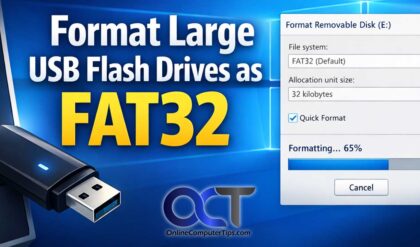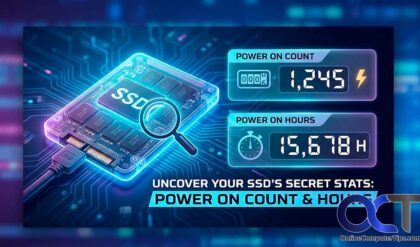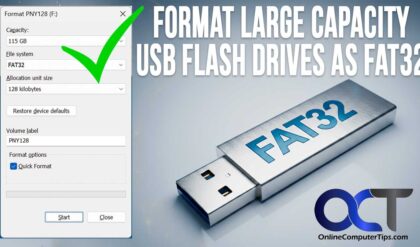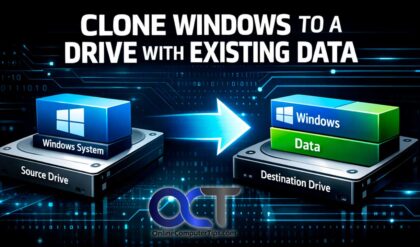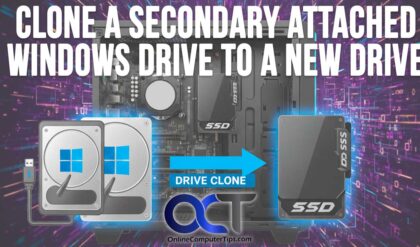Not all hardware will run all operating systems, especially Windows. Hardware components such as processors and RAM are getting faster all the time and that’s a good thing because operating system requirements are calling for faster hardware with each new release.
As Windows becomes more advanced, the required hardware to run Windows increases at the same time. Microsoft lists the minimum hardware requirements for each version of Windows but it’s never really enough to run the operating system at an acceptable level. Here is a listing of the various versions of Windows and their minimum hardware requirements. Also listed is the maximum amount of RAM and the number of processors supported as well.

Windows 2016
- 1.4 (GHz) 64 bit processor or faster that supports NX and DEP
- 512 (MB) of RAM – 2 GB for server with the Desktop Experience installed
- 32 GB of hard disk space
- Gigabit (10/100/1000baseT) PCIe Ethernet adapter with PXE support
- Super VGA (1024 x 768) or higher-resolution monitor
- Trusted Platform Module
- UEFI 2.3.1c-based system and firmware that supports secure boot
CPU (Processor):
1 GHz or faster with two or more cores on a compatible 64-bit processor or System on a Chip (SoC)Memory (RAM):
4 GB or more.Storage:
64 GB or larger available storage device.System Firmware:
UEFI firmware with Secure Boot capability.Security — TPM:
Trusted Platform Module (TPM) version 2.0 required.Graphics:
Graphics card compatible with DirectX 12 or later with a WDDM 2.0 driver.Display:
High-definition (720p) display, larger than 9 inches diagonally, with 8 bits per color channel.Internet Connection:
Required for Windows 11 Home setup and for downloading updates and some features.
- 1 (GHz) processor or faster with support for PAE, NX, and SSE2
- 1 (GB) of RAM (GB) for 32-bit versions or 2 GB for 64-bit versions
- 16 GB of hard disk space for 32-bit or 20 GB for 64-bit
- Graphics card – Microsoft DirectX 9 graphics device with WDDM driver
Windows 2012 R2
- 1.4 (GHz) 64 bit processor or faster
- 512 (MB) of RAM
- 32 GB of hard disk space
- Gigabit (10/100/1000baseT) Ethernet adapter
- Super VGA (1024 x 768) or higher-resolution monitor
Windows 8 & 8.1
- 1 (GHz) processor or faster with support for PAE, NX, and SSE2
- 1 (GB) of RAM (GB) for 32-bit versions or 2 GB for 64-bit versions
- 16 GB of hard disk space for 32-bit or 20 GB for 64-bit
- Graphics card – Microsoft DirectX 9 graphics device with WDDM driver
Windows 7
- 1 gigahertz (GHz) or faster 32-bit (x86) or 64-bit (x64) processor – We recommend a 2GHz or higer quad core processor
- 1 gigabyte (GB) RAM (32-bit) or 2 GB RAM (64-bit) – We recommend 3 or more GB
- 16 GB available hard disk space (32-bit) or 20 GB (64-bit)
- DirectX 9 graphics device with WDDM 1.0 or higher driver
- For some Windows Media Center functionality a TV tuner and additional hardware may be required
- BitLocker requires Trusted Platform Module (TPM) 1.2
- BitLocker To Go requires a USB flash drive
- Windows XP Mode requires an additional 1 GB of RAM, an additional 15 GB of available hard disk space, and a processor capable of hardware virtualization with Intel VT or AMD-V turned on
Windows Vista
All Editions (minimum requirements)
- 800 MHz processor and 512 MB of system memory
- 20 GB hard drive with at least 15 GB of available space
- Support for Super VGA graphics
- CD-ROM drive
Below are the recommended requirements from Microsoft for Vista but we recommend a faster processor like a Core2Duo and 2 GB of RAM for any version of Vista.
Home Basic
- 1 GHz 32-bit (x86) or 64-bit (x64) processor
- 512 MB of RAM
- 20 GB hard drive with at least 15 GB of available space
- Support for DirectX 9 graphics and 32 MB of graphics memory
- DVD-ROM drive
Home Premium / Business / Ultimate
- 1 GHz 32-bit (x86) or 64-bit (x64) processor
- 1 GB of RAM
- 40 GB hard drive with at least 15 GB of available space
- DVD-ROM drive
- Support for DirectX 9 graphics with:
* WDDM Driver
* 128 MB of graphics memory (minimum)
* Pixel Shader 2.0 in hardware
* 32 bits per pixel
Windows Server 2008 R2
- Single processor with 1.4 GHz (x64 processor) or 1.3GHz (Dual Core)
- 512 MB RAM
- 32 GB or greater hard drive space
- Super VGA (800 × 600) or higher resolution monitor
Windows Server 2003
Web Edition
- Supports two processors and 2GB of RAM.
- 133-MHz processor (550 MHz recommended)
- 128 MB of RAM (256 MB recommended; 2 GB maximum)
- 1.5 GB hard disk space
Standard Edition
- Supports four processors and 4GB of RAM.
- 133-MHz processor required; 550-MHz or faster processor
- 128 MB of RAM required; 256 MB or more recommended
- 1.5 GB hard disk space
Enterprise Edition
- Supports eight processors and 32GB of RAM.
- 133-MHz or faster processor for x86-based PCs; 733-MHz for Itanium-based PCs
- 128 MB of RAM required; 256 MB or more recommended
- 1.5 GB hard disk space
Datacenter 32-Bit Edition
- Supports 32 processors and 64GB of RAM.
- 400 MHz processor required; 733 MHz processor recommended
- Minimum: 512 MB of RAM; recommended: 1 GB of RAM
- 1.5 GB hard disk space
Datacenter 64-Bit edition
- Supports 64 processors and 512GB of RAM.
- Minimum: 400 MHz processor for x86-based computers or 733 MHz for Itanium-based computers; recommended: 733 MHz processor
- Minimum: 512 MB of RAM; recommended: 1 GB of RAM
- 1.5 GB hard disk space
Windows2000
Windows 2000 Professional
- Supports up to two processors and up to 4GB of RAM.
- Pentium 133 MHz, 65MB of RAM, 650 MB free hard disk space (2 GB recommended)
Windows 2000 Server
- Supports up to four processors and up to 4GB of RAM.
- Pentium 133 MHz, 128MB of RAM, 1 GB free hard disk space (2 GB recommended)
Windows 2000 Advanced Server
- Supports up to eight processors and up to 8GB of RAM
- Pentium 133 MHz, 256MB of RAM, 1 GB free hard disk space (2 GB recommended)
Windows 2000 Datacenter Server
- Supports up to 32 processors and up to 64GB of RAM.
- Pentium 133 MHz, 256MB of RAM, 1 GB free hard disk space (2 GB recommended)
Windows XP
Home
- Supports 1 processor and up to 4GB of RAM
- 233 MHz CPU (300 MHz recommended)
- 64 MB of RAM (128 MB recommended)
- 1.5 GB of available hard disk space
Professional
- Supports up to 2 processors and up to 4GB of RAM
- 233 MHz CPU (300 MHz recommended)
- 64 MB of RAM (128 MB recommended)
- 1.5 GB of available hard disk space
64 Bit Edition
- Supports up to 2 processors and up to 64GB of RAM
- AMD Athlon 64, AMD Opteron, Intel Xeon with Intel EM64T support, Intel Pentium 4 with Intel EM64T support CPUs
- 256 MB of RAM
- 1.5 GB of available hard disk space
Windows 95/98/ME
Windows 95
- Supports 1 processor and up to 2GB of RAM
- x386 CPU
- 4 MB of RAM (8 MB recommended)
- 55 MB of available hard disk space
Windows 98
- Supports 1 processor and up to 2GB of RAM
- 66 MHz CPU (300 MHz recommended)
- 16 MB of RAM (24 MB recommended)
- 225 MB of available hard disk space
Windows ME
- Supports 1 processor and up to 2GB of RAM
- 150 MHz CPU (300 MHz recommended)
- 32 MB of RAM (64 MB recommended)
- 320 MB of available hard disk space

